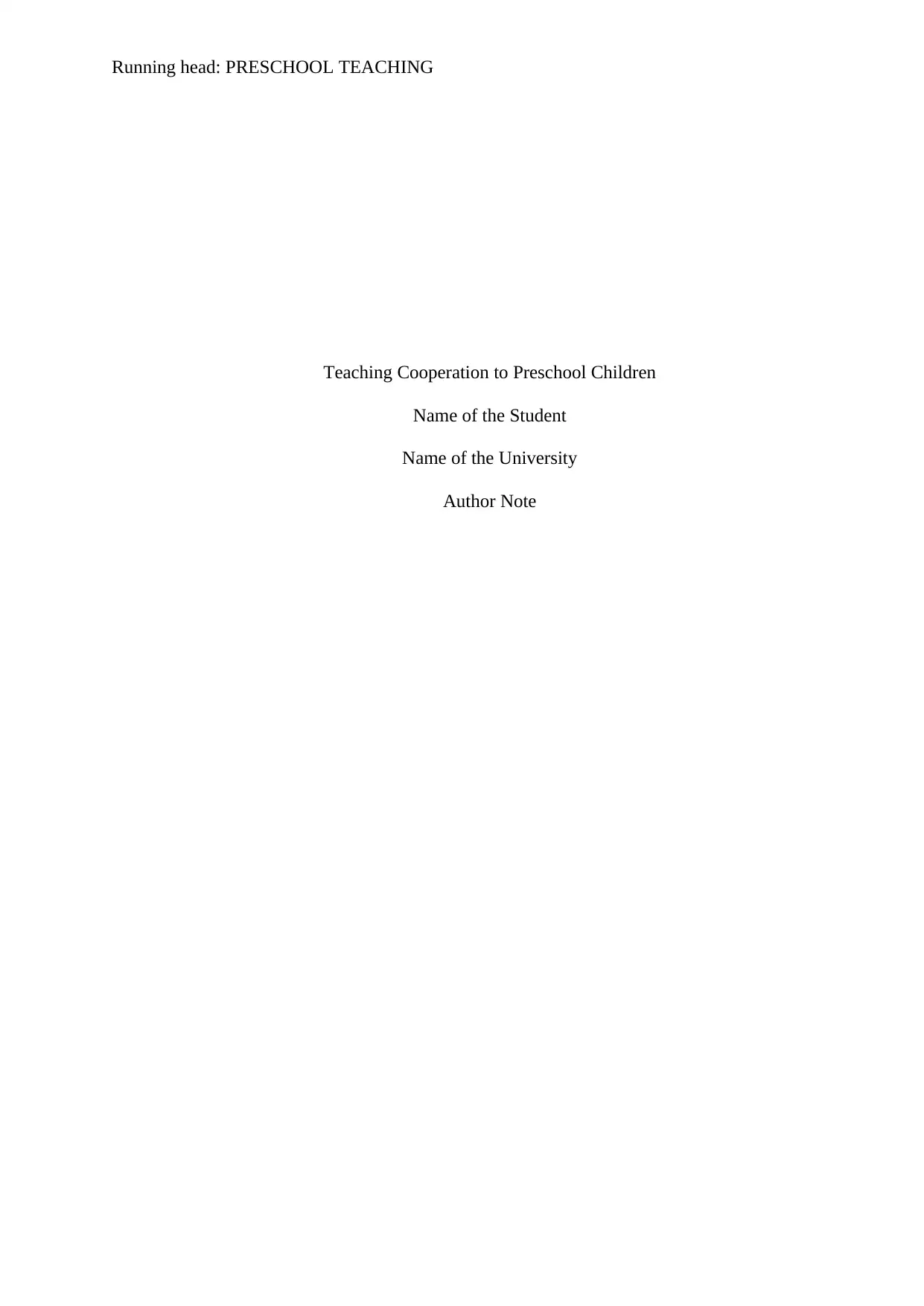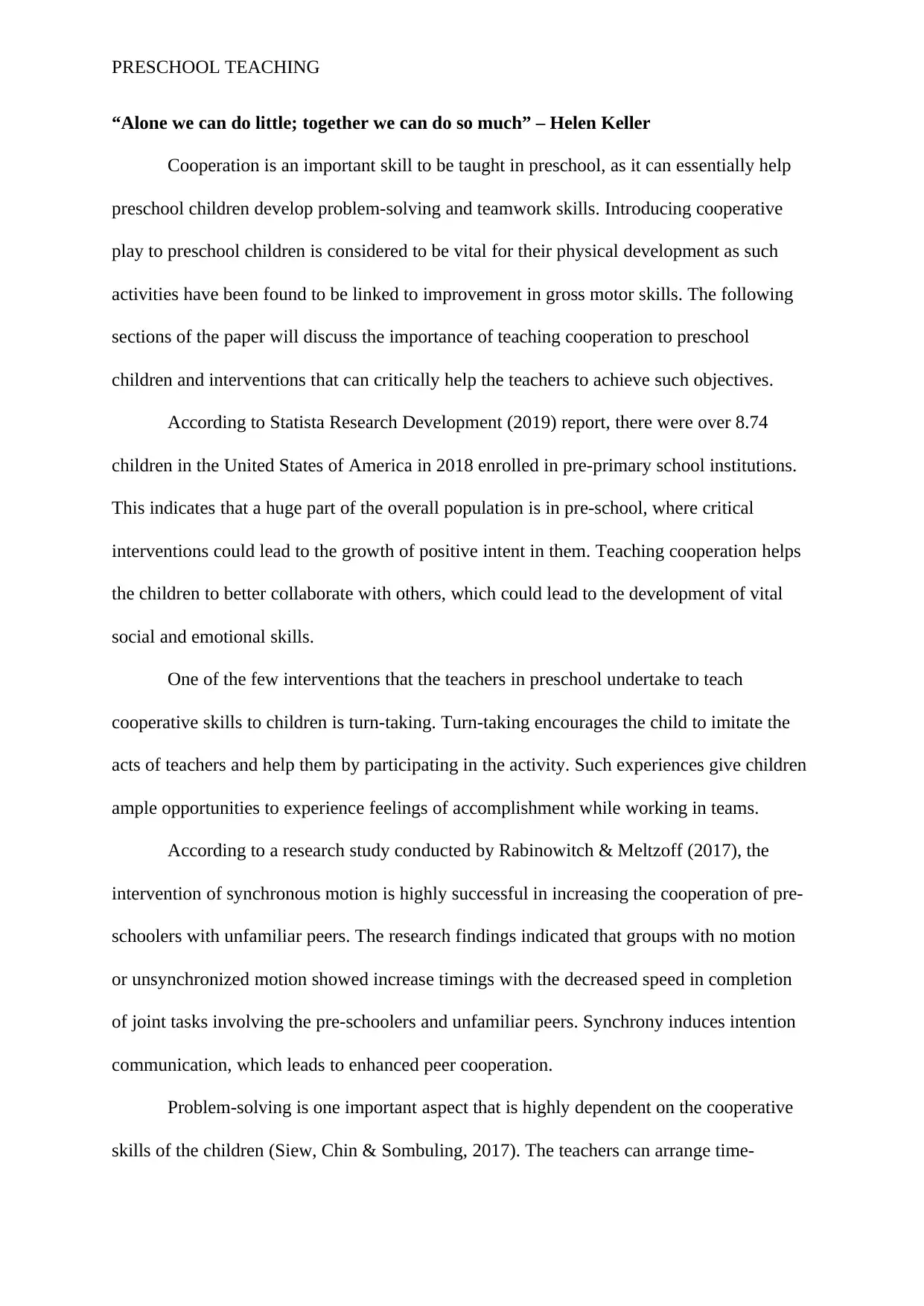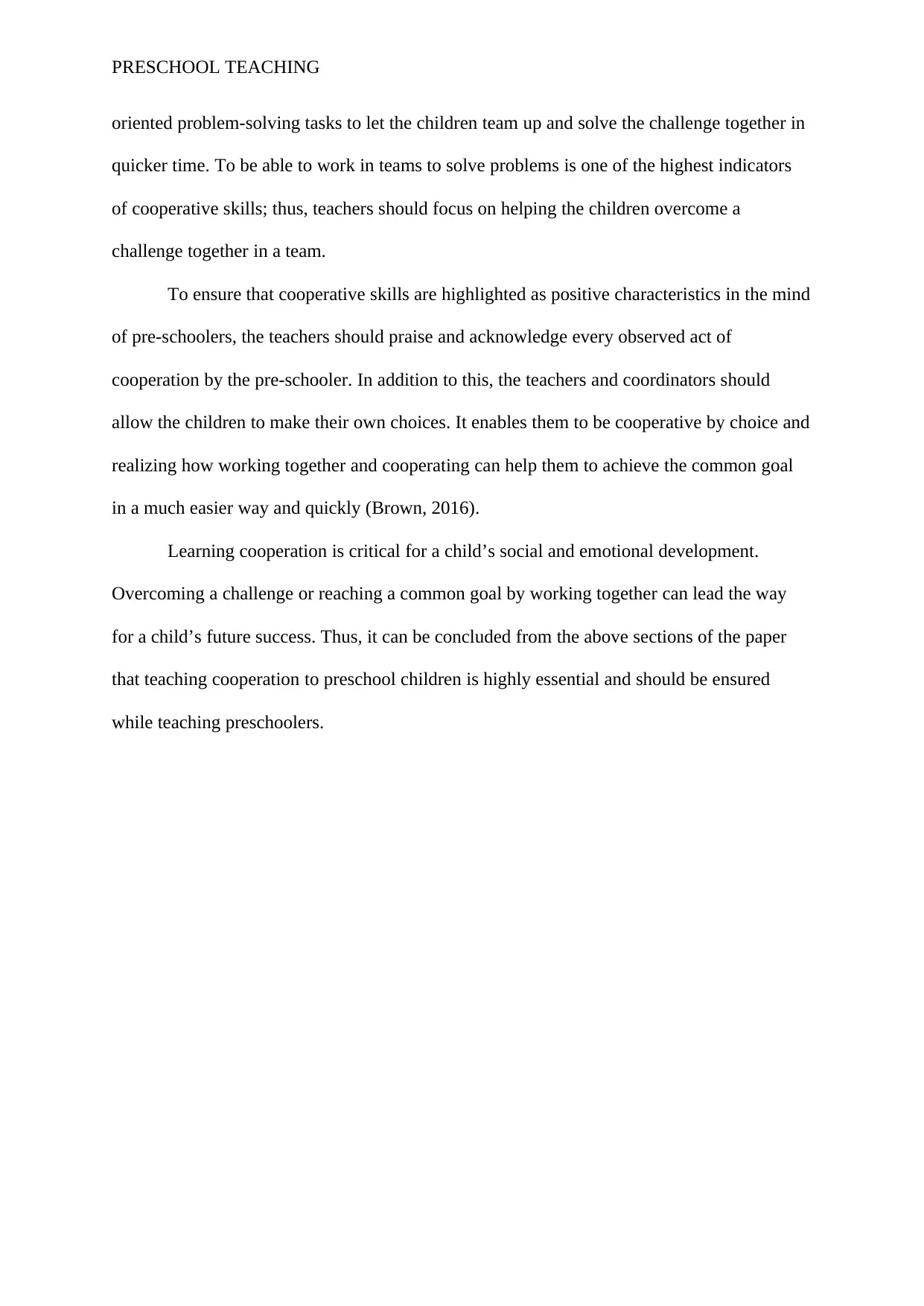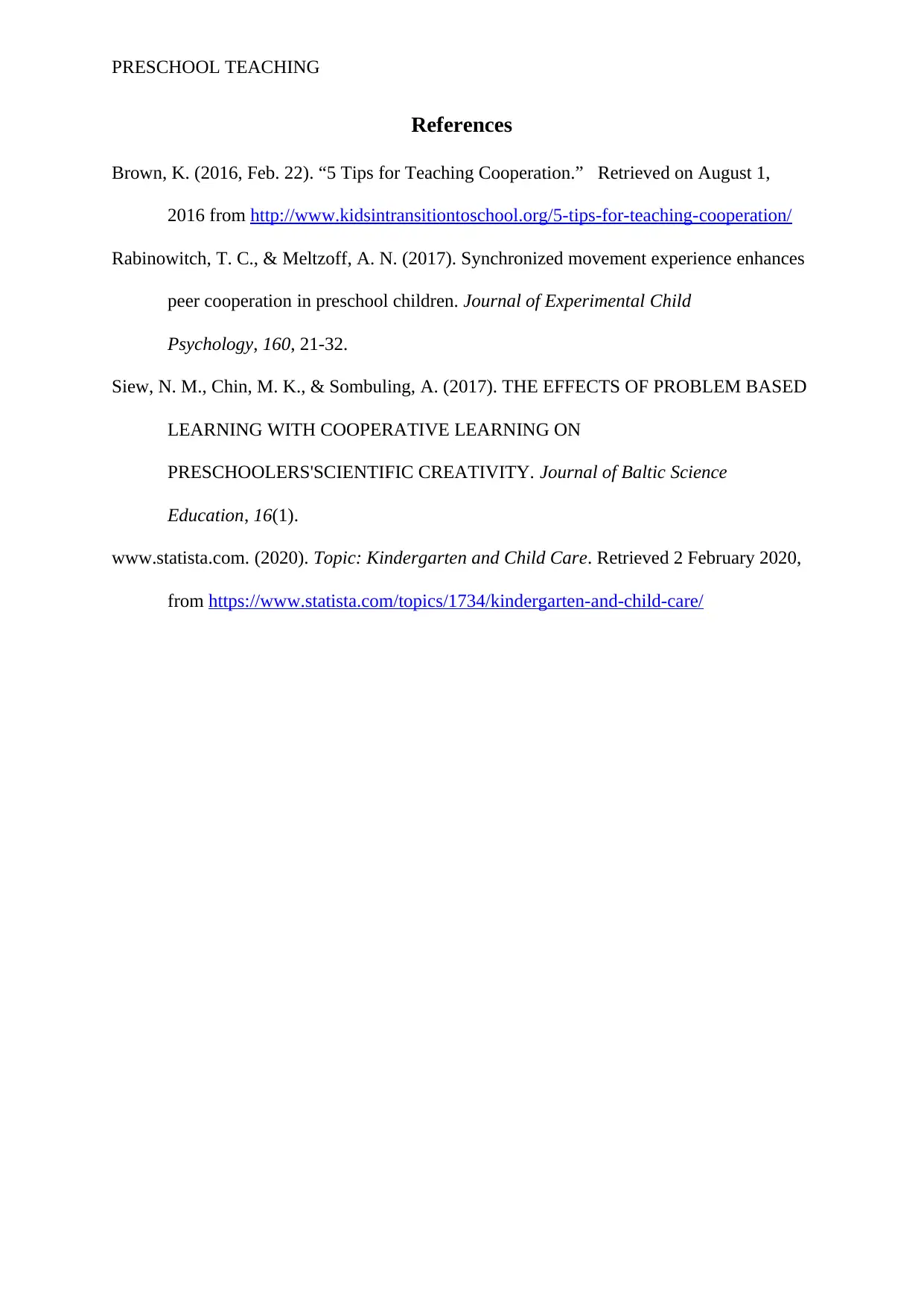Preschool Teaching: Fostering Cooperation Skills in Young Children
VerifiedAdded on 2022/08/17
|4
|701
|16
Homework Assignment
AI Summary
This paper examines the critical importance of teaching cooperation to preschool children, highlighting its role in developing essential problem-solving and teamwork skills. It references a Statista report indicating the substantial number of children in pre-primary schools, emphasizing the significance of early interventions. The paper discusses interventions such as turn-taking, synchronous motion, and problem-solving tasks, supported by research findings, to enhance cooperative behaviors. It also stresses the importance of positive reinforcement and allowing children to make choices to foster a sense of ownership and engagement in collaborative activities. The paper concludes that teaching cooperation is vital for children's social and emotional development, preparing them for future success.
1 out of 4











![[object Object]](/_next/static/media/star-bottom.7253800d.svg)